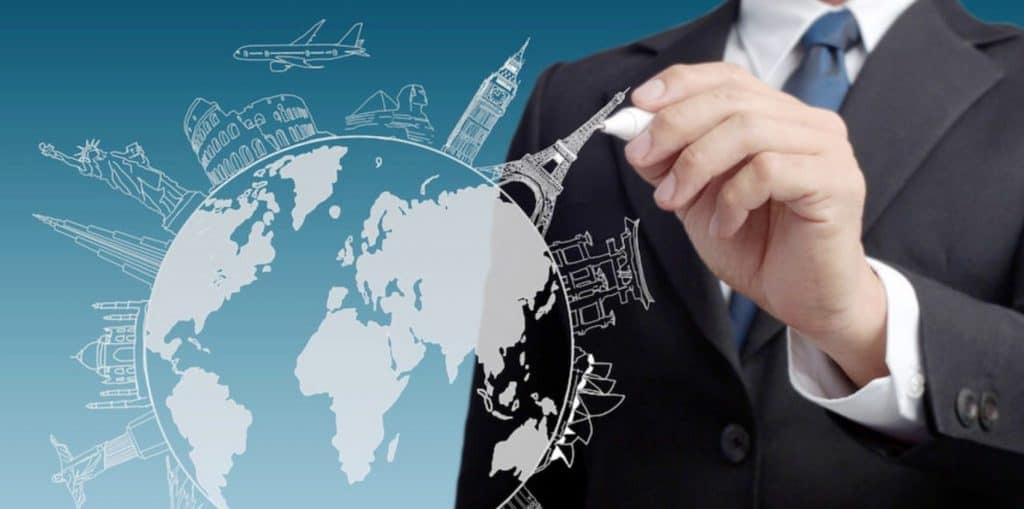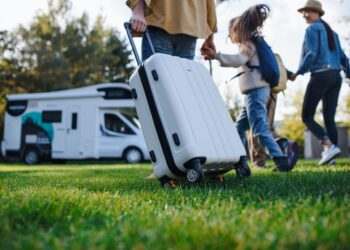In today’s interconnected global economy, business travel remains an indispensable engine for commerce, fostering crucial face-to-face interactions, closing deals, and expanding networks that simply cannot be replicated through digital means alone. For millions of professionals, traversing time zones and navigating unfamiliar cities is a routine part of their work, demanding a unique blend of efficiency, comfort, and productivity. The landscape of business travel is constantly evolving, driven by technological advancements, changing corporate policies, and a heightened focus on traveler well-being. This extensive guide will delve into the multifaceted world of business travel, exploring its essential components, the evolving needs of corporate travelers, and how strategic planning and modern solutions are reshaping the future of professional journeys.
The Core Pillars of Successful Business Travel

Successful business travel isn’t merely about getting from point A to point B; it’s about optimizing every aspect of the journey to ensure productivity, minimize stress, and maximize the return on investment for both the individual and their organization.
A. Efficient Planning and Booking
The foundation of any productive business trip lies in efficient planning and booking. This stage sets the tone for the entire journey.
A. Corporate Travel Policies: Most organizations have established travel policies that dictate approved vendors, booking channels, budget limits, and expense procedures. Adhering to these policies is crucial for compliance and cost control.
B. Online Booking Tools (OBTs): Companies often utilize OBTs or specialized travel management platforms (e.g., Concur, Egencia) that integrate corporate policies, preferred vendors, and expense reporting. These tools streamline the booking process, ensure compliance, and often provide better negotiated rates.
C. Flight and Accommodation Selection: Strategic choices are vital. This includes selecting flights that minimize layovers, offer convenient timings for meetings, and provide comfortable cabin classes. For accommodation, proximity to business venues, reliable Wi-Fi, and appropriate business amenities are key considerations.
D. Visa and Document Management: For international travel, meticulous management of visas, passports, and any other necessary permits is non-negotiable. Travel management companies often assist with this complex process to ensure compliance and avoid delays.
E. Pre-Trip Communication: Clear communication regarding itineraries, ground transportation, and meeting schedules is essential for the traveler and their contacts at the destination.
B. Seamless Ground Transportation
Navigating unfamiliar cities effectively is critical for productivity. Seamless ground transportation solutions are a top priority for business travelers.
A. Airport Transfers: Pre-booked airport transfers (private cars, hotel shuttles) offer convenience and reliability upon arrival, especially after long flights. Ride-sharing services (Uber, Grab, Lyft) also provide flexible on-demand options.
B. Public Transportation: Utilizing a city’s public transport network (subways, trains, buses) can be the most time and cost-efficient option, especially in dense urban centers. Business travelers often research routes and ticketing in advance.
C. Rental Cars: For meetings spread across a region or in areas with limited public transport, a rental car provides necessary flexibility. Corporate accounts often offer discounted rates and expedited pick-up.
D. Taxis and Ride-Hailing Apps: For shorter distances or when time is critical, traditional taxis or ride-hailing apps offer convenient door-to-door service. Expense integration with these apps further streamlines reporting.
C. Productivity on the Go
Time is money, and business travelers need to remain productive while away from their primary office. Productivity on the go relies heavily on connectivity and suitable workspaces.
A. Reliable Connectivity: High-speed, secure Wi-Fi is paramount in hotels, airports, and meeting venues. Portable Wi-Fi devices or international data plans ensure constant access.
B. Mobile Workstations: Laptops, tablets, and smartphones are essential tools. Cloud-based productivity suites (Microsoft 365, Google Workspace) allow access to documents and collaboration from anywhere.
C. Dedicated Workspaces: Hotel rooms with ergonomic desks and comfortable chairs, hotel business centers, airport lounges with workstations, and co-working spaces in major cities provide conducive environments for focused work.
D. Virtual Meeting Tools: Platforms like Zoom, Microsoft Teams, or Google Meet allow business travelers to participate in virtual meetings, keeping them connected with their teams and clients back home or across different time zones.
D. Comfort and Well-being
While productivity is key, the comfort and well-being of business travelers are increasingly recognized as vital for sustained performance and employee retention.
A. Quality Accommodation: Comfortable beds, quiet rooms, and amenities that promote rest and relaxation are crucial for combating jet lag and ensuring a good night’s sleep.
B. Fitness Facilities: Access to hotel gyms, swimming pools, or local fitness centers allows travelers to maintain their exercise routines, which is vital for physical and mental health on the road.
C. Healthy Dining Options: Hotels offering healthy meal choices, catering to dietary restrictions, and providing easy access to nutritious food help travelers maintain energy levels and well-being.
D. Stress Management: Companies are increasingly considering policies that allow for downtime, encourage short leisure activities, or provide access to wellness resources to mitigate the stresses of constant travel.
E. Safety and Security: Hotels with robust security measures, well-lit public areas, and secure room access provide peace of mind for travelers, especially those traveling alone.
E. Expense Management and Reporting
Streamlined expense management and reporting are critical for both the traveler and the organization, ensuring accuracy and efficiency.
A. Digital Expense Reporting Software: Platforms like Concur, Expensify, or SAP Concur allow travelers to easily capture receipts, categorize expenses, and submit reports from their mobile devices, greatly reducing manual paperwork.
B. Corporate Credit Cards: Providing corporate credit cards simplifies payment for approved expenses and centralizes tracking, offering better visibility and control for the finance department.
C. Automated Reimbursements: Integration of expense software with payroll systems ensures timely and accurate reimbursements, improving employee satisfaction.
D. Policy Compliance Features: Software often includes built-in policy checks that flag non-compliant spending, helping travelers stay within guidelines and reducing the need for manual auditing.
The Evolving Landscape of Business Travel

Business travel is not static; it’s a dynamic sector shaped by global events, technological breakthroughs, and shifts in corporate culture.
A. Post-Pandemic Resurgence and Hybrid Models
The global pandemic drastically altered business travel, but it has seen a significant post-pandemic resurgence. However, the nature of travel has evolved, giving rise to hybrid models.
A. Fewer, More Purposeful Trips: Companies are often sending employees on fewer, but more impactful trips, ensuring face-to-face meetings are truly necessary and value-driven.
B. Bleisure Travel: The blending of business and leisure (“bleisure”) is increasingly common, with travelers extending their trips for personal enjoyment. Hotels are adapting by offering packages that cater to this trend.
C. Remote Work Integration: With the widespread adoption of remote work, business travel is now often about bringing distributed teams together for collaboration or training, rather than just client visits.
B. Focus on Traveler Well-being and Duty of Care
There’s a heightened emphasis on traveler well-being and duty of care. Companies are recognizing their responsibility to ensure the health, safety, and mental well-being of their employees on the road.
A. Enhanced Safety Protocols: Hotels and airlines have implemented advanced cleaning and safety measures (e.g., improved air filtration, contactless services).
B. Mental Health Support: Providing resources for mental health, combating isolation, and managing stress associated with frequent travel.
C. Flexible Policies: Offering more flexible cancellation policies, allowing changes without punitive fees, and providing options for premium economy or business class on longer flights to ensure comfort.
D. Real-time Risk Management: Utilizing technology to track traveler locations, provide real-time alerts on safety threats, and offer immediate assistance in emergencies.
C. Sustainability in Corporate Travel
Sustainability is becoming a critical factor in corporate travel decisions. Companies are under increasing pressure from stakeholders to reduce their carbon footprint.
A. Carbon Offsetting Programs: Investing in carbon offsetting programs to mitigate the environmental impact of flights and hotel stays.
B. Preference for Eco-Friendly Vendors: Choosing airlines with newer, more fuel-efficient fleets and hotels with strong sustainability certifications.
C. Travel Reduction Initiatives: Encouraging virtual meetings for routine interactions and optimizing itineraries to minimize unnecessary flights.
D. Reporting and Transparency: Implementing systems to accurately track and report carbon emissions from business travel to meet corporate social responsibility goals.
D. Technology Advancements
The role of technology in business travel is continually expanding, with AI and predictive analytics leading the way.
A. Personalized Itineraries: AI can analyze traveler preferences and past bookings to suggest highly personalized flight and hotel options that comply with policy.
B. Dynamic Pricing and Optimization: Advanced algorithms optimize pricing and suggest optimal booking times to secure the best rates.
C. Automated Risk Alerts: AI-powered systems can monitor global events and provide real-time risk alerts to travelers, offering rerouting options or safety advice.
D. Chatbots and Virtual Assistants: Providing instant support for booking changes, expense queries, or general travel assistance, available 24/7.
E. Rise of Blended Travel Management
The lines between corporate and leisure travel are blurring, leading to the rise of blended travel management. Companies are recognizing that employees want the flexibility to extend business trips for personal leisure.
A. Integrated Booking Platforms: Tools that allow easy transition from business to leisure bookings within the same platform.
B. Flexible Per Diem and Expense Policies: Adapting policies to accommodate “bleisure” components, differentiating between business and personal expenses transparently.
C. Hotel Perks for Extended Stays: Hotels offering special rates or amenities for business travelers who extend their stay for leisure.
The Economic and Societal Impact of Business Travel
Business travel is a powerful economic engine, contributing significantly to global GDP, fostering innovation, and driving growth across numerous sectors.
A. Driving Economic Growth and Global Trade
Business travel directly fuels economic growth and global trade. It facilitates international investments, fosters cross-border partnerships, and enables the exchange of goods and services, ultimately leading to job creation and increased prosperity worldwide. Industries like aviation, hospitality, and ground transportation are directly dependent on it.
B. Fostering Innovation and Collaboration
Face-to-face interactions often lead to greater innovation and collaboration. They allow for nuances in communication, spontaneous brainstorming, and deeper relationship building that virtual meetings often lack. This directly impacts product development, strategic planning, and problem-solving within organizations.
C. Supporting the Travel and Hospitality Industry
The business travel segment is a cornerstone for the travel and hospitality industry. It provides a stable and often high-value revenue stream for airlines, hotels, car rental companies, and restaurants, especially during off-peak leisure seasons, contributing significantly to their bottom lines.
D. Professional Development and Knowledge Transfer
Business trips offer invaluable opportunities for professional development and knowledge transfer. Attending conferences, workshops, and client meetings allows professionals to acquire new skills, stay abreast of industry trends, and share expertise, enhancing their capabilities and the collective knowledge of their organizations.
E. Cultural Exchange and Global Understanding
Frequent international business travel contributes to cultural exchange and global understanding. It exposes individuals to different cultures, business practices, and perspectives, fostering empathy, breaking down barriers, and promoting a more interconnected and understanding world.
Practical Tips for Travelers and Companies
For business travelers and the companies that send them, strategic approaches can significantly enhance the travel experience and its outcomes.
A. For the Business Traveler:
A. Pack Smart and Light: Utilize packing cubes, multi-functional clothing, and minimize liquids to save time and avoid checked baggage fees. A well-organized carry-on can be a game-changer.
B. Stay Connected and Charged: Always carry portable chargers/power banks. Ensure you have reliable international data or local SIM cards for seamless communication.
C. Prioritize Rest: Combat jet lag by adjusting sleep schedules before departure, staying hydrated, avoiding excessive alcohol, and utilizing hotel blackout curtains for quality sleep.
D. Build Downtime: If possible, schedule short breaks or extend your trip for “bleisure” to explore the destination and de-stress. Even a quick walk can make a difference.
E. Leverage Loyalty Programs: Join airline and hotel loyalty programs. Accumulate points for upgrades, free stays, and exclusive perks that enhance comfort on future trips.
F. Embrace Technology: Utilize mobile check-in, digital keys, and expense tracking apps to streamline your journey and reduce administrative burdens.
G. Stay Informed: Keep an eye on global news and local alerts for your destination. Use travel risk management apps provided by your company.
B. For Companies and Travel Managers:
A. Robust Travel Policy: Develop and enforce a clear, comprehensive, and flexible travel policy that balances cost control with traveler comfort and safety.
B. Invest in Travel Tech: Implement advanced OBTs, RMS, and expense management software to automate processes, gain data insights, and improve compliance.
C. Prioritize Duty of Care: Implement robust travel risk management protocols, including real-time traveler tracking, emergency communication, and access to medical/security assistance.
D. Negotiate Preferred Vendor Agreements: Leverage corporate volume to negotiate favorable rates with airlines, hotels, and car rental companies, securing discounts and added perks.
E. Promote Traveler Well-being: Integrate wellness initiatives into travel programs, offering flexibility, encouraging downtime, and providing resources for physical and mental health.
The Future of Business Travel
The trajectory of business travel points towards a landscape that is even more integrated with technology, deeply personalized, and fundamentally more sustainable and traveler-centric.
- Hyper-Personalized AI Travel Assistants: AI will evolve beyond booking tools, acting as proactive hyper-personalized travel assistants, anticipating needs, optimizing itineraries based on real-time traffic/weather, and even adjusting meeting schedules based on traveler well-being data.
- Integrated Mobility as a Service (MaaS): Business travel will integrate deeply with Mobility as a Service (MaaS) platforms, offering seamless multi-modal transportation planning and booking, from first-mile to last-mile, all within one intuitive app.
- Biometric Identity and Seamless Checkpoints: The use of biometric identity (facial recognition, fingerprint scans) will become standard, enabling lightning-fast and secure passage through airports, hotels, and security checkpoints, eliminating physical documents.
- Sustainable Travel as a Default: Corporate travel programs will increasingly default to sustainable options, with integrated carbon footprint calculators, preferred eco-friendly vendors, and automatic carbon offsetting, making responsible choices effortless.
- Work From Anywhere (WFA) Infrastructure: Hotels will offer enhanced “work from anywhere” (WFA) infrastructure, including advanced co-working spaces, high-tech meeting rooms for hybrid collaboration, and packages catering specifically to extended “workcations” or team off-sites.
- Predictive Health and Wellness Support: Wearable tech and AI will provide predictive health and wellness support, offering personalized recommendations for managing jet lag, nutrition, and exercise based on a traveler’s biometric data and itinerary.
- Blockchain for Secure Expenses and Loyalty: Blockchain technology could be leveraged for highly secure and transparent expense management, smart contracts for travel bookings, and a more interoperable, frictionless loyalty point ecosystem across travel providers.
- Virtual Reality (VR) for Pre-Trip Immersion: VR will allow business travelers to virtually “walk through” meeting venues, hotel rooms, and even key client locations before they travel, optimizing planning and reducing uncertainty.
Conclusion
Business travel is far more than an operational necessity; it’s a strategic investment in growth, relationships, and global connectivity. By embracing innovation, prioritizing traveler well-being, and integrating sustainable practices, the industry is not just recovering but evolving into a smarter, more responsible, and ultimately more impactful force in the global economy. The future promises a business journey that is as productive as it is comfortable, ensuring that every trip is a success.









